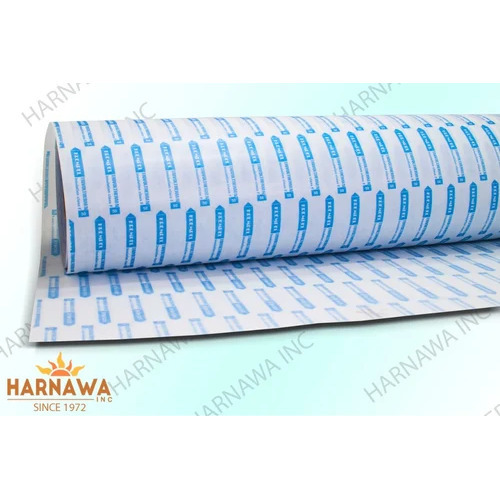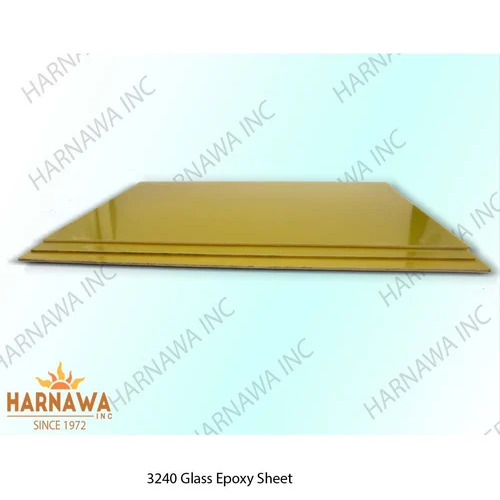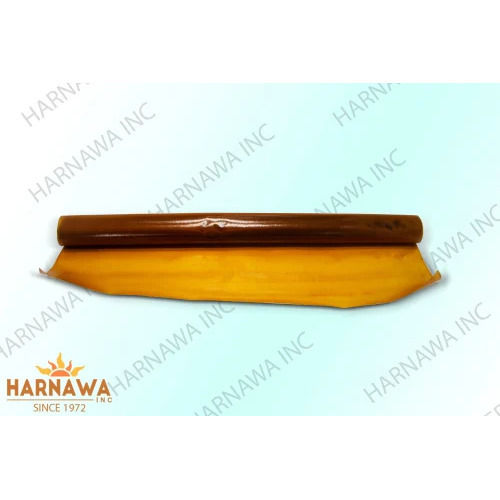- Home Page
- Company Profile
-
Our Products
- Fiberglass and Insulation Sleeves
- Fire Resistant Sleeve
- Polyester Expandable Braided Sleeves
- Insulation Sleeves
- SRBP Tubes
- Polyurethane Fiberglass Sleeves 1.5 kv
- Varnished Fiberglass Sleeve F Class
- Acrylic Fiberglass Sleeving
- Polyurethane Fiberglass Sleeve
- Fire Sleeves
- PVC Coated Fiberglass Sleeve
- Silicone Coated Fiberglass Sleeve
- Polyurethane Coated Fiberglass Sleeves
- Fiberglass Sleeve ( China Sleeve )
- Fiberglass Sleeving B Class
- Nomex Paper and Electrical Insulation Papers
- Pure Aramid Paper
- Laminated Fleece Paper
- Eurotherm Laminated Nomex Paper NPN
- Electrical Insulating Paper
- Laminated Aramid Paper
- Saturated Fleece Paper
- DuPont Nomex Paper
- Saturated Fleece Paper
- Insulating Kraft Paper
- Insulation Pressboard
- Laminated Nomex
- Pure Aramid (Nomex) Paper
- Electrical Insulation Papers and Laminates
- Laminated Fleece
- Black Kraft Paper
- Amotforse Brown Kraft Paper
- Diamond dotted Paper
- Fiberglass and Insulated Cables
- Glass Epoxy Sheets and Wedges
- Varnishes and Thinners
- Electrical Insulation Tapes
- Electrical Insulation Sheets and Fabrics
- PTFE Wire
- Silicon Cable
- Insulation Film
- Fiberglass and Insulation Sleeves
- Certificates
- Contact Us
Fiberglass Insulated Paper
10.0 INR/Meter
Product Details:
- Usage & Applications Industrial
- Usage Industrial
- Size Standard Sizes
- Material Fiberglass
- Application Industrial
- Product Type Insulated Paper
- Color White
- Click to view more
X
Fiberglass Insulated Paper Price and Quantity
- 10.0 INR/Meter
- 1 Kilograms
- 32.00 - 35.00 INR/Meter
Fiberglass Insulated Paper Specification
- Fiberglass
- Industrial
- Industrial
- Insulated Paper
- Industrial
- White
- Standard Sizes
Fiberglass Insulated Paper Trade Information
- 3 Days
- Asia, Australia, North America, South America, Eastern Europe, Western Europe, Central America, Middle East, Africa
- All India
Product Description
A foundation paper or cellulose paper is impregnated with resin, then layers of fibreglass are bonded to it, creating fibreglass insulated paper, also known as fibreglass insulation paper or fish paper. Numerous electrical and electronic applications employ this substance.
Fiberglass Insulated Paper Features:
1. Fibreglass insulated paper has great qualities for electrical insulation. In order to avoid short circuits and ensure electrical safety, it is used to isolate and separate conductive components in electrical systems.
2. It is appropriate for situations where heat dispersion and insulation are crucial since it has good thermal resistance and can endure high temperatures.
3. Fibreglass insulating paper has a high dielectric strength, making it excellent for high-voltage applications since it can endure strong electric fields without degrading.
4. Strengthening the papers mechanical properties and making it more durable against tearing, punctures, and mechanical stress is the addition of fibreglass layers.
5. Despite the fibreglass layers giving it some rigidity, the material still has considerable flexibility, making it easy to cut or shape to suit different components and conform to irregular forms.
6. Fibreglass insulating paper is frequently resistant to a wide range of chemicals, including oils, solvents, as well as various acids and bases, making it appropriate for usage in challenging industrial settings.
7. Some types of fibreglass insulation sheets are resistant to moisture and continue to function electrically even in humid environments.
8. It offers strong tear resistance, which is important in applications where mechanical forces might be used.
Fiberglass Insulated Paper Benefits:
1. Fibreglass insulation paper is generally used for electrical insulation. This lowers the danger of electrical mishaps or damage by ensuring that electrical systems and components stay isolated and secure.
2. Due of its resistance to extreme temperatures, it can be used in motors, transformers, and other electrical appliances that produce heat while in use.
3. Due to its versatility, electrical characteristics, and thermal resistance, it may be utilised in a variety of applications, such as slot liners, phase insulation, coil insulation, and gasket materials.
4. Fibreglass insulating paper has a long service life, which adds to the dependability and sturdiness of electrical systems and components.
5. Flexibility in design and application is made possible by its simple ability to be sliced, curved, or stacked to satisfy particular needs.
6. It is still dependable and stable when exposed to a variety of environmental factors, such as dampness, chemicals, and UV rays.
7. Fibreglass insulation paper frequently conforms with industrial standards and safety laws, ensuring that electrical systems fulfil the necessary standards for safety.
8. Compared to some specialised materials, it offers a cost-effective alternative for electrical insulation needs.
FAQs of Fiberglass Insulated Paper:
1. What is Fibreglass Insulated Paper and what applications does it often have?
Ans: A base paper or cellulose paper is impregnated with resin, then layers of fibreglass are bonded to it to create fibreglass insulated paper, also known as fish paper. Due to its superior electrical insulating qualities, heat resistance, and dielectric strength, it is frequently utilised in electrical and electronic applications.
2. What are the main uses of fibreglass insulated paper?
Ans: As slot liners, phase insulation, coil insulation, and gasket materials, fibreglass insulated paper is utilised in a variety of electrical applications. In order to offer electrical insulation and thermal protection, it is frequently used in electric motors, transformers, generators, and electrical devices.
3. What are the benefits of choosing Fibreglass Insulated Paper over other insulating materials?
Ans: Excellent electrical insulating capabilities, high thermal resistance, dielectric strength, flexibility, and resilience to moisture, chemicals, and ripping are just a few benefits of utilising Fibreglass Insulated Paper. It is a popular option in many electrical applications since it is also affordable and adaptable.
4. Is fibreglass insulated paper resistant to moisture?
Ans: In response, several grades of fibreglass insulated paper are built to resist moisture. These grades are excellent for applications where exposure to moisture is a problem since they preserve their electrical qualities even in humid environments. The degree of moisture resistance, however, can differ depending on the particular brand of insulation paper utilised.
5. How can Fibreglass Insulated Paper be modified for particular uses?
Ans: In order to satisfy unique needs, fibreglass insulated paper is easily customizable by cutting, forming, or layering. Different grades and thicknesses can be offered by manufacturers to serve a variety of applications, providing for design flexibility and meeting insulating needs. Choosing the right resin and fibreglass content to match the desired qualities for a particular application is another example of customization.
Superior Insulation for Industrial Needs
Fiberglass Insulated Paper offers superior thermal and electrical insulation, essential for safeguarding industrial components. Its fiberglass composition ensures durability and stability in high-temperature environments, making it an optimal choice for electrical insulation in transformers, motors, and other heavy-duty machinery.
Available Across India
Whether you require this insulating paper for manufacturing, supplying, exporting, or importing, leading distributors and suppliers across India provide standard sizes to meet diverse industrial requirements. Its widespread availability ensures you get the right product swiftly and efficiently.
FAQs of Fiberglass Insulated Paper:
Q: How is Fiberglass Insulated Paper used in industrial applications?
A: Fiberglass Insulated Paper is typically utilized as an insulating layer in electrical machinery such as transformers and motors, where it helps prevent short circuits and enhances safety by providing reliable thermal and electrical insulation.Q: What benefits does Fiberglass Insulated Paper offer for industrial usage?
A: The primary benefits of using this product include excellent resistance to heat and electricity, durability in harsh industrial environments, and a clean, uniform finish, contributing to safer, more efficient operation of machinery and equipment.Q: When should you choose Fiberglass Insulated Paper over other insulating materials?
A: You should opt for Fiberglass Insulated Paper when your application demands high thermal stability, superior dielectric properties, and consistent performance in industrial settings, particularly in electrical insulation roles.Q: Where can you source Fiberglass Insulated Paper in India?
A: Fiberglass Insulated Paper is available through reputable distributors, exporters, importers, manufacturers, suppliers, and traders throughout India, ensuring convenient and timely access to standard sizes for industrial needs.Q: What is the process for using Fiberglass Insulated Paper in manufacturing?
A: The paper is typically cut to the required standard size, fitted as an insulating barrier within electrical devices, and securely installed to prevent electrical and thermal leakage, ensuring long-lasting equipment performance.Q: What sizes and color options are available for Fiberglass Insulated Paper?
A: This product is offered in standard sizes suitable for most industrial uses, and comes in a distinctive white color, facilitating easy identification and quality control during application.Tell us about your requirement

Price:
Quantity
Select Unit
- 50
- 100
- 200
- 250
- 500
- 1000+
Additional detail
Mobile number
Email

 Send Email
Send Email 








 Send Inquiry
Send Inquiry Send SMS
Send SMS Call Me Free
Call Me Free
 English
English Spanish
Spanish French
French German
German Italian
Italian Chinese (Simplified)
Chinese (Simplified) Japanese
Japanese Korean
Korean Arabic
Arabic Portuguese
Portuguese